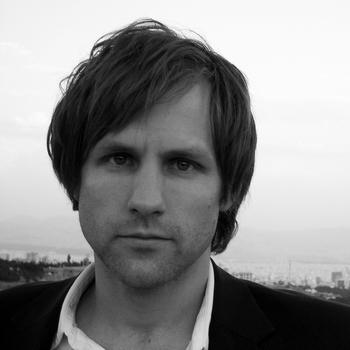Claudius Lünstedt

Interweaving Performance Cultures
Fellow 2014/15
Claudius Lünstedt teaches playwriting and dramaturgy at the Freie Universität Berlin and at the Universität der Künste, where he was a visiting professor in 2014. Born in Munich and educated at the Academy of Music and Theatre in Leipzig, he has published two dozen plays with Verlag der Autoren, Frankfurt/Main. Productions of his plays have been staged in Vienna, Berlin, Nuremberg and Dresden, among others, and he has held residencies in Paris, Tehran and Kyoto. He was a participant at the “Weekend of Young Playwrights” at the Kammerspiele Munich, the “Autorentheatertage” at Thalia Theatre Hamburg and the “Autorenwerkstatttage” at the Burgtheater in Vienna, and is a consultant for the “international forum of new cinema” at the Berlinale. He has won numerous awards for his plays, most recently the Golden Mask Award from Russia for his libretto “Heiliger Franz.”
Research Project
Ostwest/Passagen
From his childhood days onwards, the clichéd “magic of the Orient” was for Goethe a kind of safe haven entered via the reading of travelogues or fairy tales. When the 65-year-old man sought to divert himself from his war-torn homeland in the autumn of 1813, he found relief in the Persian poet Hafez, whose “Divan” he read in Joseph von Hammer’s translation. In the following years, Goethe read about fifty reference works from or about Persia, from which he expected “a broadened knowledge of Oriental circumstances.” Although he did not have the chance to travel to the country and meet its inhabitants, and thus had to trust in translations of foreign texts, Goethe, with the aim of amalgamating “things Eastern with one’s own things”—that is to say, by interweaving his own soul with that of his Persian co-writers—composed his own cycle of poems, “being cradled between two worlds.”
The reaction to the book was devastating, not only in Goethe’s own time. Well into the 20th century, his attempt to aesthetically interweave East and West met with misunderstanding and disapproval. It is well known that Goethe himself did not think his readers were ready to read his “Divan” the way it deserved to be read.
Continuing and expanding my work Teheran 1386, “Ostwest/Passagen” is intended as a disparate, mosaic-like bundle of texts, which, by displaying the self-awareness of the stranger’s gaze, forms the literary subjective but also semi-documentary and relentless status quo of German-Iranian relations. Although no concrete reference is made to it, Goethe’s “Divan” shines through like a palimpsest, not in recourse to individual passages but in tracing and reviewing some of its most important works of reference.
Recommended Publications
- Buch des Kabus. Lehren des persischen Königs Kjekjawus für seinen Sohn Ghilan Schach. Ed. Heinrich Friedrich von Diez. Berlin: Nicolaische Buchhandlung 1811.
- Claudius Lünstedt. Teheran 1386. In: Theater heute 10/2009.


